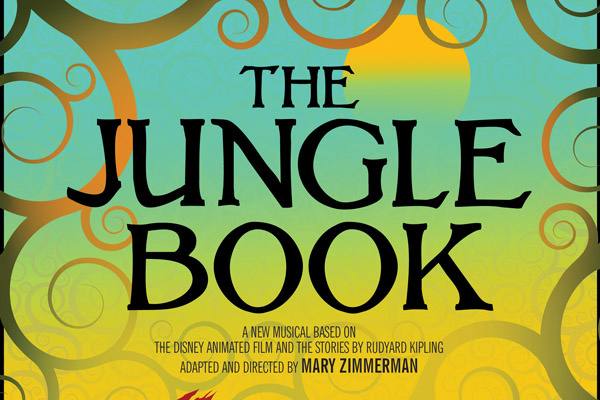
Design: kelly rickert/courtesy of the goodman theatre
Director and playwright Mary Zimmerman has been hard at work adapting The Jungle Book for the stage at the Goodman Theatre (June 21 to August 4). She's already shared how she went about creating the new musical, but she also took some time to answer how she reconciled some of the story's more controversial aspects.
You spent a lot of time researching Rudyard Kipling before adapting the musical. What did you think of the man, especially his politics in regards to India?
Kipling’s politics are pretty terrible and pretty undeniable. One thing I learned though, he came by them honestly. His parents left him at age 8, he and sister were left at a facility where both were systematically abused. He’s written about this in his autobiography.
He also writes about the discovery of reading and how reading saved his life in that situation. His exoticizing of the jungle, his romance with it was psychologically well earned. He was taken from his childhood paradise there [in India] and abandoned. He wrote his first Jungle Book stories in Vermont, under three feet of snow. The way his imagination has overcompensated for that loss is in his writing.
The Jungle Book, and King Louie in particular, has been criticized as playing into racial stereotypes. Was that a concern when adapting the film?
Yeah, it was a concern. But I’ve decided to make it not a concern. I know what the lyrics say and how squeamish you can get about that. But we’ve done some things with casting that I’m not going to give away, but that I think will remove that element. I know what the lyrics of [“I Wanna Be Like You”] say, but look at the original—it’s sung by Louis Prima. He’s the King of the Swingers. It’s something I think where the racism is in the eye of the beholder, you know? If you look at that as racist, doesn’t that say more about what you’re projecting on to the character? There’s clearly politics in the [British] accents Disney used, but I don’t think we’ll be using accents at all.
Look, if you wanted to eliminate every masterpiece or painting created by someone who had moronic ideas about status and race, you’d have to empty the museums. You’d have to tear down the Taj Mahal. That was built by slaves you know. People are so layered—no one is all good or bad. There are parts of them that are better than the other parts. Sometimes I feel like righteous indignation is everybody’s favorite emotion these days.
Having been in India I realize most of the stuff we know about India is from books written by Westerners. But you go over there and you see that the British occupation was so short in the history of the country. No one is sitting around moping about the raj. You have to remember the past, but you don’t have to live in it.
What about the lack of female characters in the film? Did that bother you?
It’s thematic. There’s something deliberate about the lack of women in the story, something deliberately significant. That little girl at the end is the call out of the jungle. Although there will be more women in the cast than in the film.
I’m not bothered by Kipling’s lack of female characters. Girls are incredibly adept at slipping into the shoes of the male pronouns. It’s like, okay, this story wasn’t written for me but I’m going to take it anyway.
What do you hope the audience in general takes away from the musical?
That’s a capitalist question. I feel like it’s enough for shows to be experiences. There is no object that you take. I hope what audiences have at the end is a sense of the incredible wonderment of being a child. Children have one foot in reality and one foot somewhere else.
Mowgli’s whole world is enchanted—everything is new. I love to travel so much because it makes me feel young, because you don’t know what’s around the corner. You get that feeling of encountering the world for the first time over and over.



Comments are closed.